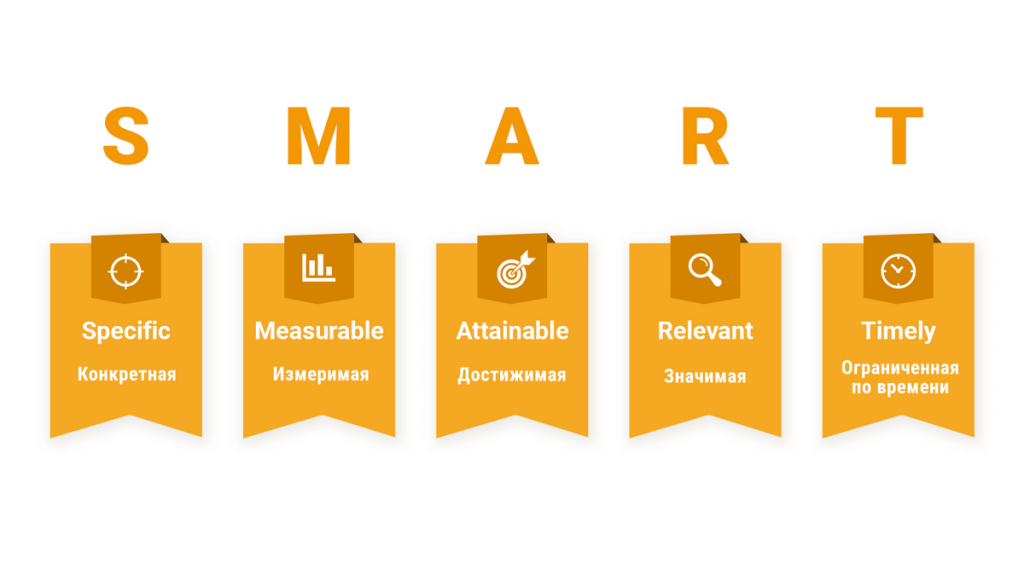
In today’s fast-paced digital landscape, social media has become an indispensable tool for brands and individuals alike. Whether you are a burgeoning influencer, a small business owner, or a marketing executive in a large corporation, having a clear social media strategy is essential for success. However, crafting that strategy requires more than just a vague idea of what you want to achieve. It necessitates the establishment of SMART goals—Specific, Measurable, Achievable, Relevant, and Time-bound objectives that guide your efforts and help you measure success.
In this post, we will delve into the importance of setting SMART goals for your social media strategy, how to align these goals with your broader business objectives, and how Sociobo can help you achieve your social media aspirations through innovative techniques like social proof aggregation.
Understanding SMART Goals
Specific
The first step in setting SMART goals is to ensure they are specific. A specific goal clearly defines what you want to accomplish. Instead of saying, “I want to increase my followers,” a specific goal would be, “I want to increase my Instagram followers by 20% in the next three months.

Being specific helps you focus your efforts and provides a clear direction. It also allows you to identify the resources you need to achieve your goals. For instance, if your goal is to increase your followers, you might need to invest in content creation, social media advertising, or even services like those offered by Sociobo, which can help boost your profile’s visibility through aggregated followers.
Measurable
Once you have a specific goal, it’s crucial to make it measurable. This means you should be able to track your progress and determine when you have achieved your goal. Using the previous example, you could measure your progress by tracking the number of followers you gain each week.
Measurable goals allow you to evaluate your performance and make adjustments as necessary. For instance, if you find that your follower growth is stagnating, you can analyze your social media metrics to determine what’s working and what isn’t. Tools like Sociobo can help you analyze engagement metrics, allowing you to make data-driven decisions that enhance your social media strategy.
Achievable
Setting an achievable goal means that it should be realistic and attainable. While it’s great to aim high, setting a goal that is too ambitious can lead to frustration and disappointment. For example, if you currently have 1,000 followers, aiming for 100,000 followers in a month may not be realistic.
Instead, consider what resources you have at your disposal, including time, budget, and skills. An achievable goal might be to increase your followers from 1,000 to 1,500 over the next three months. This goal is challenging yet attainable, especially with the right strategies in place, such as utilizing Sociobo’s services to enhance your social media credibility through social proof.
Relevant
Your goals should also be relevant to your overall business objectives. This means they should align with your brand identity and contribute to your larger mission. For instance, if your business goal is to increase sales, a relevant social media goal could be to drive traffic to your website through engaging content and targeted ads.
By ensuring that your social media goals are relevant, you can create a cohesive strategy that supports your broader business objectives. Sociobo’s services can play a crucial role here by enhancing your brand’s visibility and authority on social media, thus driving more traffic and potential sales.
Time-bound
Finally, every goal should have a deadline. A time-bound goal creates a sense of urgency and helps you stay focused. Instead of saying, “I want to increase my social media engagement,” a time-bound goal would be, “I want to increase my social media engagement by 30% over the next six months.”
Setting a timeline not only motivates you to take action but also allows you to assess your progress periodically. This is where tools and services like Sociobo can help you monitor your growth and engagement metrics, ensuring you stay on track to meet your deadlines.
Leveraging Social Media Metrics
Once you have established your SMART goals, the next step is to leverage social media metrics to optimize your strategy. Social media analytics provide valuable insights into audience behavior, content performance, and overall campaign effectiveness.

Understanding Your Audience
One of the primary benefits of social media analytics is improved audience understanding. By analyzing demographic data, interests, and engagement patterns, you can tailor your content more effectively to your target audience. For example, if you discover that your audience is primarily composed of young adults interested in fitness, you can create content that resonates with this demographic, such as workout tips, nutrition advice, or motivational quotes.
Measuring Campaign Performance
Tracking key performance indicators (KPIs) such as engagement rates, reach, and conversion rates in real-time allows you to assess the effectiveness of your campaigns. This iterative process enables continuous improvement and more efficient resource allocation. For instance, if a particular post garners high engagement, you can analyze what made it successful and replicate that strategy in future content.
Enhancing Content Strategy
The analysis of social media metrics can significantly enhance your content strategy. By identifying which types of content resonate most with your audience, you can focus your efforts on creating high-performing content that is more likely to be shared and interacted with. This data-driven approach can lead to increased organic reach and improved return on investment (ROI).
Competitive Insights
Social media analytics also provide valuable competitive insights. By benchmarking your performance against competitors, you can identify areas for improvement and develop strategies to gain a competitive edge. This comparative analysis can reveal industry trends and best practices that inform your overall marketing strategies.
To effectively leverage social media metrics, businesses should:
- Set clear goals and align KPIs with specific objectives.
- Use appropriate analytics tools that provide comprehensive data.
- Regularly analyze and interpret data to identify trends and patterns.
- Adjust strategies based on insights gained from metrics.
- Experiment with different approaches and continuously refine tactics.
Aligning Goals with Business Strategy
Aligning social media goals with your overall business strategy is crucial for maximizing the impact of your digital marketing efforts. This alignment ensures that your social media activities directly contribute to your company’s broader objectives and drive tangible business results.

Defining Business Objectives
The first step in aligning your social media goals with your business strategy is to clearly define your business objectives. Identify the overarching goals of your organization, such as increasing sales, expanding market share, or improving customer satisfaction.
Translating Objectives into Social Media Goals
Once you have defined your business objectives, the next step is to translate them into social media goals. For instance, if your business’s aim is to increase sales, the corresponding social media goal could be to generate more leads or drive website traffic.
Setting Platform-Specific Targets
Different social media platforms serve different purposes. For example, LinkedIn might be better suited for B2B lead generation, while Instagram could focus on brand awareness. Setting platform-specific targets allows you to tailor your approach to each platform’s unique audience and features.
Developing Relevant KPIs
Choose metrics that directly reflect progress toward your business objectives. For a sales-focused goal, track conversion rates and click-through rates rather than just follower growth. This ensures that your social media efforts are aligned with your overall business strategy.
Creating a Content Strategy
Develop content that aligns with both your social media objectives and broader business aims. This might include product showcases, customer testimonials, or educational content that positions your brand as an industry leader. Sociobo’s services can help enhance your content strategy by boosting your profile’s visibility and engagement metrics.

Integrating Social Media Efforts
Ensure that your social media campaigns complement and reinforce messaging across other marketing touchpoints for a cohesive brand experience. This integration helps create a unified brand identity and enhances the overall effectiveness of your marketing efforts.
Regularly Reviewing and Adjusting
Continuously monitor performance against your set goals and be prepared to adjust strategies based on insights gained from social media analytics. This flexibility allows you to respond to changing market conditions and audience preferences effectively.
Collaborating Across Departments
Work closely with other teams, such as sales, product development, and customer service, to ensure that your social media efforts support company-wide initiatives. This collaboration fosters a holistic approach to marketing and enhances the overall effectiveness of your strategies.
Enhancing Customer Loyalty via Social Media
Social media platforms offer unique opportunities for brands to foster customer loyalty through direct engagement, personalized interactions, and value-added content. By leveraging these channels effectively, businesses can create lasting connections with their audience and turn casual customers into brand advocates.

Providing Exceptional Customer Service
One key strategy for enhancing customer loyalty via social media is to provide exceptional customer service. Responding promptly and effectively to customer inquiries, complaints, and feedback on social platforms demonstrates a commitment to customer satisfaction. According to a study by Sprout Social, 40% of consumers expect brands to respond within the first hour of reaching out on social media.
Creating Exclusive Content
Creating exclusive content and experiences for social media followers is another powerful way to enhance loyalty. This can include behind-the-scenes glimpses, early access to new products or sales, and special promotions available only to social media followers.
Personalization
Personalization is crucial in fostering loyalty on social media. By analyzing customer data and interactions, brands can tailor their content and offers to individual preferences. A report by Accenture found that 91% of consumers are more likely to shop with brands that recognize, remember, and provide relevant offers and recommendations.
Encouraging User-Generated Content
Encouraging and showcasing user-generated content (UGC) is an effective way to build community and loyalty. By featuring customer photos, reviews, and stories, brands not only provide social proof but also make their followers feel valued and heard.
Integrating Loyalty Programs
Loyalty programs can be seamlessly integrated with social media efforts to drive engagement and repeat purchases. For example, Starbucks’ rewards program allows members to earn and redeem points through their mobile app, which is closely tied to their social media presence.
Showcasing Brand Values
Finally, brands can enhance customer loyalty by using social media to showcase their values and social responsibility initiatives. Modern consumers, particularly millennials and Gen Z, are more likely to be loyal to brands that align with their personal values.

Setting SMART goals is an essential step in defining and achieving your social media objectives. By being specific, measurable, achievable, relevant, and time-bound, you can create a clear roadmap for your social media strategy that aligns with your broader business goals.
At Sociobo, we understand the importance of social media in building your brand’s identity and credibility. Our unique approach to social proof aggregation can help you enhance your social media presence, attract genuine followers, and ultimately achieve your SMART goals. By leveraging our services, you can boost your profile’s visibility and engagement, making it more attractive to organic followers.
Ready to take your social media strategy to the next level? Explore how Sociobo can help you achieve your objectives and build a strong online presence. Visit Sociobo.com today and discover the power of social proof in enhancing your brand’s visibility and influence on social media!






No comment yet, add your voice below!